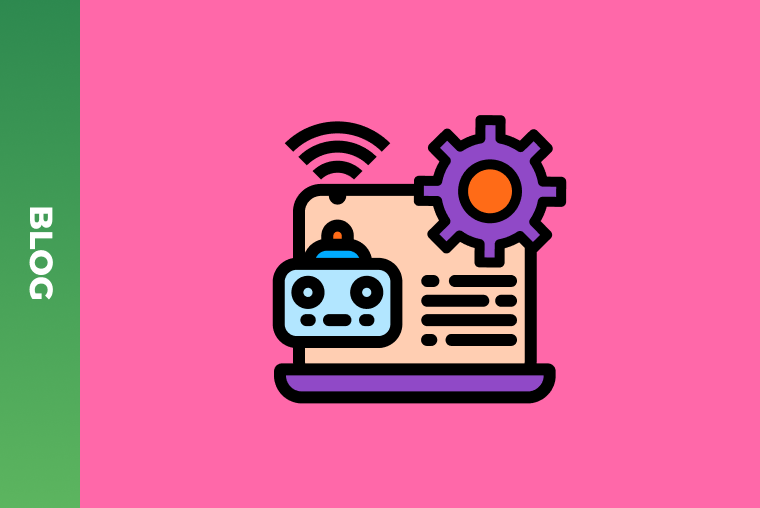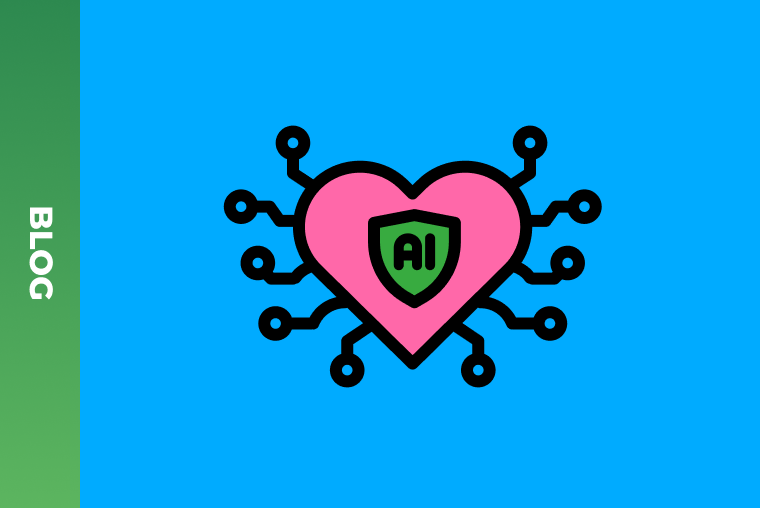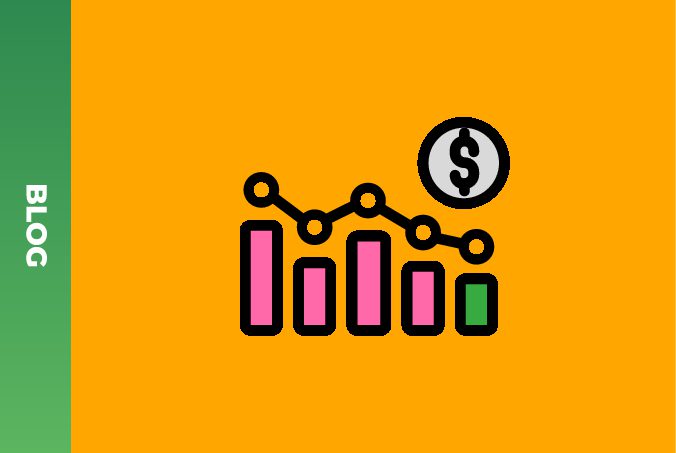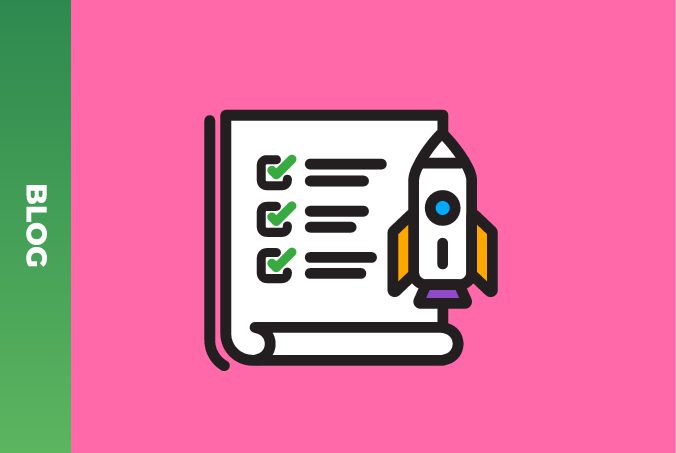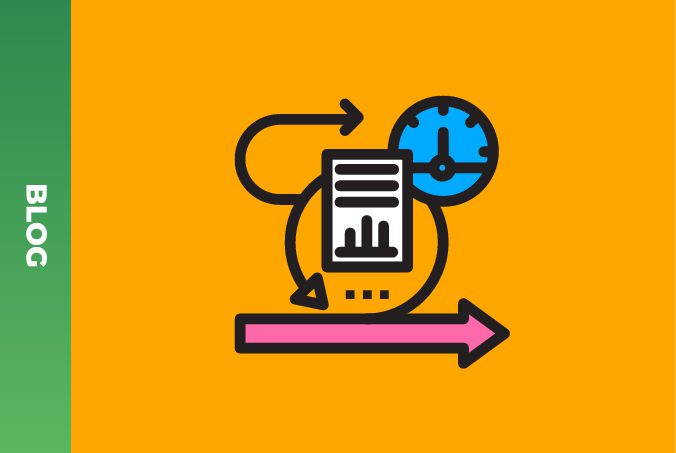Shaping personalized care with generative AI in healthcare
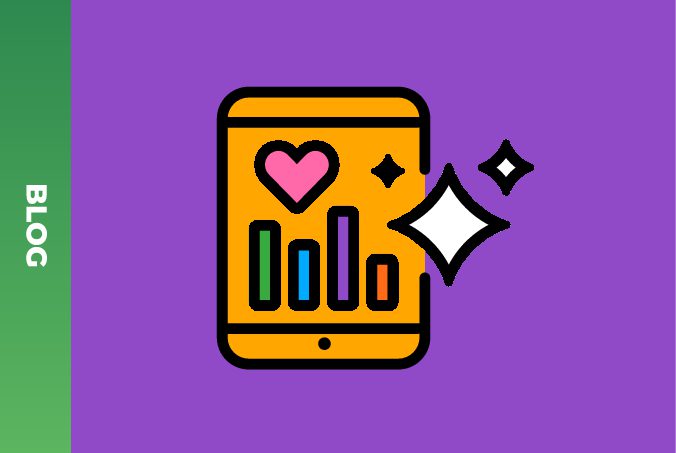
Do you remember the day when you bought a robot vacuum cleaner and wondered how you had been living without it your whole life? This device is an integral part of our household now. The same thing is with generative artificial intelligence (AI). The evolution of AI generative models has ushered in a transformative era, rendering them indispensable as irreplaceable helpers across various domains, particularly in healthcare.
Some interesting figures: According to Business Wire, after the COVID-19 pandemic, 85% of healthcare leaders say they have an AI strategy and 48% have implemented it. Overall, 98% of healthcare organizations either have a strategy or are planning one. They say AI has the potential to improve patient outcomes in multiple ways, namely: virtual patient care (41%), diagnosis and predicting outcomes (40%), and medical image interpretation (36%).
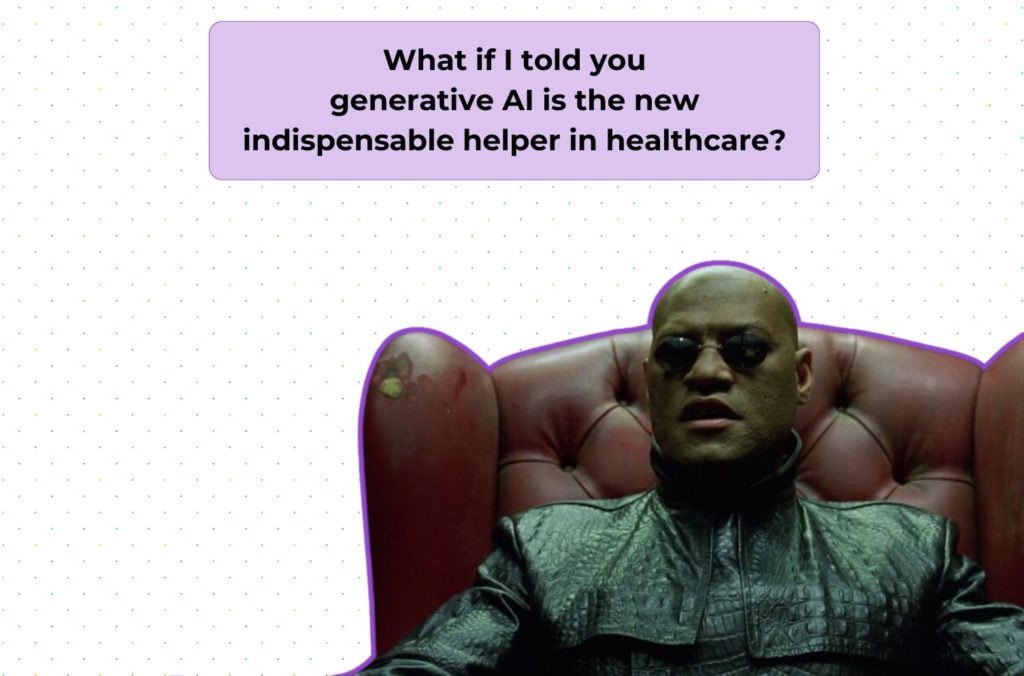
Whether we wanted it or not, generative AI became a trend in healthcare. By leveraging the capabilities of generative AI, it is possible to unlock new dimensions of data analysis, personalized care, predicting patient-specific responses to treatments, identifying potential risks, and tailoring interventions accordingly. This article explores the role of generative AI in healthcare and its potential to revolutionize personalized care delivery.
Artificial intelligence in medicine impact factor
To make sure AI takes initiative in healthcare, it is worth mentioning that its impact factor in medicine varies between 7.0 and 7.5 and gets higher. This topic is just disseminated so fast. And it’s not for nothing. AI in medicine extends far beyond the numbers, accelerating drug discovery, treatment efficacy, personalized care, and the overall patient experience. At this point, let’s pay more attention to the combination of AI and personalized care.
Personalized care in healthcare
The concept of personalized care has been a longstanding goal in healthcare, aiming to tailor medical interventions to the unique characteristics of each patient. Traditional approaches, however, often struggled to fully realize this aspiration due to the complexity of individual variations. The advent of generative AI is changing this narrative, bringing in a new stage where the dream of personalized care becomes a tangible reality.
So, how can personalized medical care be improved with generative AI?
Precision medicine advancements
Generative AI, with its ability to analyze vast datasets and identify subtle patterns, has become instrumental in advancing precision medicine. By integrating genetic information, lifestyle factors, and medical histories, AI algorithms uncover patterns and correlations that might escape human observation. This, in turn, allows healthcare providers to formulate highly targeted treatment plans, maximizing therapeutic benefits.
Virtual health assistants
Virtual health assistants, powered by generative AI and natural language processing, have emerged as invaluable assets in personalized care. These assistants go beyond routine tasks, engaging in empathetic and context-aware conversations with patients. They provide support, answer queries, and offer guidance, contributing not only to patient education but also fostering a sense of personalized care that transcends traditional healthcare interactions. Speaking of remote stuff, AI combined with IoT can positively influence personalized care and healthcare data security.
Enhanced diagnostics through image interpretation
Generative AI has significantly enhanced medical imaging and diagnostics. The ability to generate high-quality, realistic medical images aids healthcare professionals in detecting abnormalities with greater accuracy. Whether it’s identifying early signs of diseases or providing precise insights into complex medical conditions, generative AI is reshaping the diagnostic landscape.
Predictive analytics for patient outcomes and disease prevention
AI’s impact extends beyond the treatment phase, incorporating predictive analytics for patient outcomes. By analyzing historical data and identifying patterns, AI generative algorithms can predict potential health risks and outcomes, empowering healthcare providers to intervene proactively. Plus, AI generative algorithms can analyze patient data to predict potential health risks and recommend preventive measures. This proactive approach helps in preventing diseases before they become severe, reducing healthcare costs and improving overall population health.
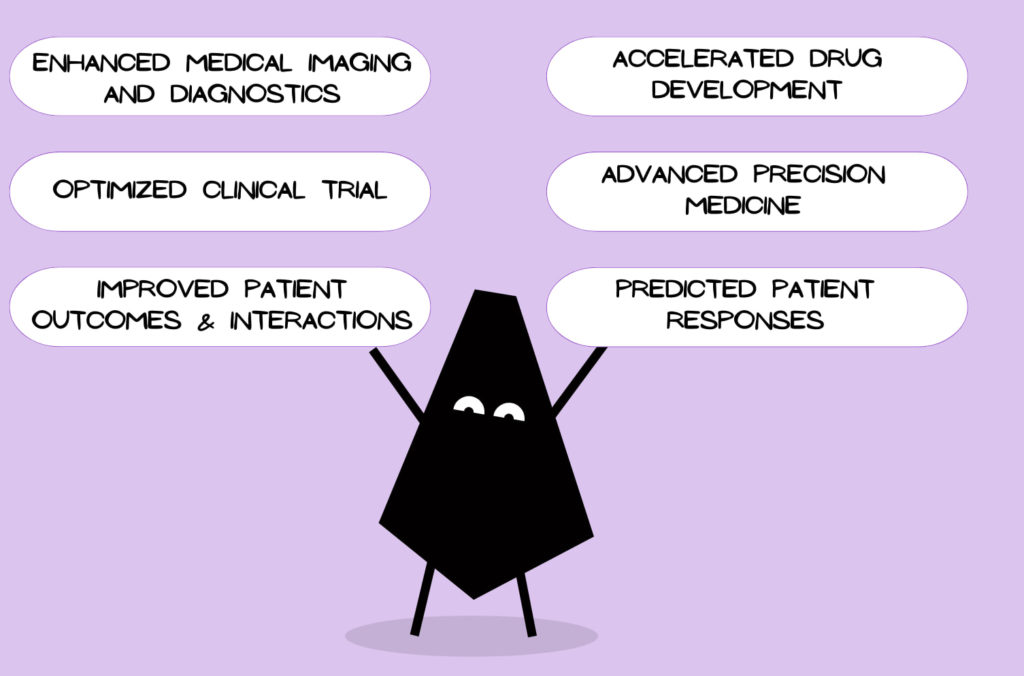
More applications of generative AI in healthcare:
- Drug discovery and development: In pharmaceutical research, generative AI aids in drug discovery by generating molecular structures, analyzing biological data, identifying potential drug candidates, and predicting their efficacy. This accelerates the drug development process, reducing costs associated with traditional trial-and-error methods and increasing the efficiency of identifying novel compounds.
- Telehealth & telemedicine: Telemedicine practice leverages AI for remote patient monitoring, enabling healthcare professionals to keep track of patients’ vital signs and adjust treatment plans as needed.
- Data augmentation and synthesis: Generative AI can be used to augment and synthesize healthcare data. This is particularly useful when dealing with limited datasets for training machine learning models, allowing for the creation of diverse and realistic data points.
- Natural Language Processing (NLP) for clinical notes: In the realm of clinical documentation, generative AI powered by NLP can assist in generating human-like clinical notes. This can streamline the documentation process for healthcare providers, ensuring accurate and comprehensive patient records.
- Personalized medicine: Generative AI plays a role in advancing personalized medicine by analyzing patient data, including genetic information and medical histories. This allows for the generation of personalized treatment plans, optimizing therapeutic interventions based on individual patient characteristics.
- Efficient administrative processes: Generative AI streamlines administrative tasks such as appointment scheduling, billing, and insurance claims processing. Automation of these routine tasks allows healthcare professionals to focus more on patient care and less on administrative burdens.
- Clinical trial optimization: AI helps in identifying suitable candidates for clinical trials by analyzing patient data and selecting individuals with specific characteristics. This not only expedites the trial recruitment process but also ensures a more targeted and diverse participant pool.
Future of generative AI in individualized healthcare
- Predicting patient-specific responses: Generative AI has the potential to revolutionize how we predict patient-specific responses to treatments. By analyzing vast datasets encompassing patient histories, genetic information, and treatment outcomes, AI generative algorithms can identify patterns that lead to more accurate predictions. This foresight allows healthcare providers to tailor interventions based on the expected response of individual patients.
- Identifying potential risks: Another area where generative AI shines is in identifying potential risks associated with specific patient profiles. By analyzing diverse sets of data, including genetic predispositions, lifestyle factors, and environmental influences, AI algorithms can flag potential risks early on. This proactive approach enables healthcare providers to implement preventive measures and mitigate potential health challenges.
- Tailoring interventions: The true power of generative AI lies in its capacity to tailor interventions based on the unique characteristics of each patient. Whether it’s adjusting medication dosages, recommending lifestyle changes, or devising personalized treatment plans, generative AI ensures that healthcare interventions are precisely aligned with the individual needs of patients.
Conclusion: get your happy patients with generative AI in healthcare
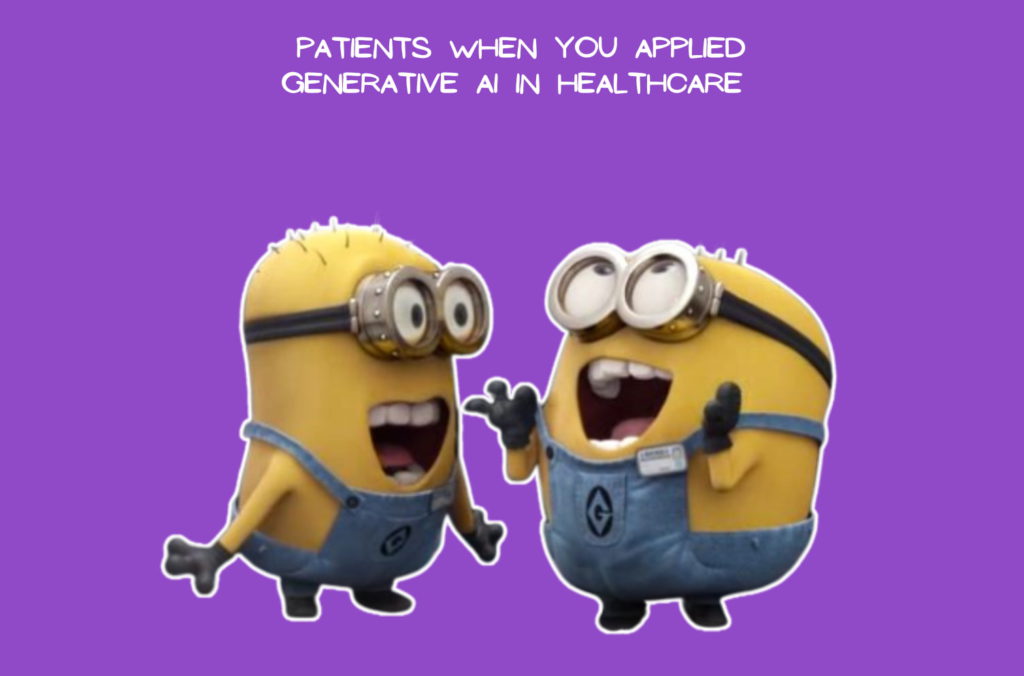
As we delve into the future, the trajectory of generative AI in individualized healthcare is filled with promise. With ongoing advancements in AI generative algorithms, increased collaboration between technology developers and healthcare professionals, and the integration and analysis of patient feedback, the capabilities of generative AI are poised to reach new heights.
Generative AI is poised to play a transformative role in shaping the future of personalized care in healthcare. From precision medicine to enhancing patient engagement, the applications of generative AI are diverse and breakthrough. The infusion of generative AI not only streamlines processes but ultimately enhances the quality of care and patient outcomes, making patients satisfied. If you are still curious about succeeding with generative AI in healthcare, just contact us, we are always by your side. See you soon!

